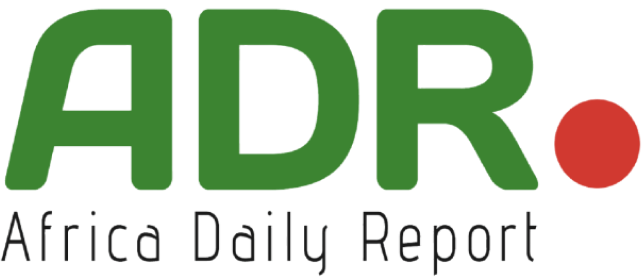
Summary: In October 2024, Emmanuel Macron made a historic move by officially recognizing Morocco’s sovereignty over the Sahara. This decision represents a significant shift in Franco-Moroccan relations with potentially profound implications for North African geopolitics. Beyond the impact on France and Morocco, this stance could reshape the European Union’s approach to the Maghreb, eliciting diverse reactions from allies and rivals alike. This article delves into the economic, political, and geopolitical dimensions of France’s repositioning, examining the consequences for France, the Maghreb, and Europe as a whole.
Introduction
France’s official recognition of Morocco’s sovereignty over the Sahara represents a diplomatic shift of major proportions and, for some, a bold strategic gamble. President Emmanuel Macron’s decision to take this stance breaks with France’s tradition of maintaining a delicate balance between the rival neighbors Morocco and Algeria in the Maghreb. This recognition goes beyond a simple show of support for Rabat; it signifies a strategic realignment in North Africa. The fundamental question is whether, by aligning with Morocco, France is laying the groundwork for a unified European policy in the Maghreb or risking an escalation of regional tensions. As Africa gains importance in global geopolitics and economics, this decision could influence not only Franco-Moroccan relations but also the broader European approach to the Maghreb.
I. Economic Foundations and Strategic Interests behind France’s Support for Morocco
France’s endorsement of Morocco’s autonomy plan for the Sahara is deeply rooted in economic and strategic interests. For years, Morocco has established itself as a leader in renewable energy across Africa, particularly in solar and green hydrogen. These advances make Morocco a crucial partner for Europe, which seeks to diversify its energy sources and reduce reliance on fossil fuels. Southern Morocco, rich in natural resources and developmental potential, represents an opportunity for France to secure sustainable investments in high-growth sectors.
A report from the French Institute of International Relations (IFRI) states that “Morocco is a key pillar in France’s economic strategy in Africa.” The southern provinces of Morocco attract significant infrastructure projects, notably in railways, and investments in key industries like automotive and agriculture. By aligning itself with Morocco on the Sahara issue, France aims to position itself advantageously in this region, ensuring French companies gain privileged access to Moroccan markets and projects.
French companies, particularly in energy and infrastructure, view this alliance as a pathway to expand their presence in a rapidly growing region. France’s involvement in green hydrogen projects and renewable infrastructure could ultimately cement its influence in the Maghreb as Europe pursues alternatives to fossil fuels. This partnership is thus both a bold political gesture and a long-term economic strategy to secure vital resources amid Europe’s ecological transition.
II. Geopolitical Repercussions and Algeria’s Reaction
France’s alignment with Morocco’s position has provoked a strong reaction from Algeria, a historical rival to Morocco and a key energy partner for Europe. This shift breaks with France’s previous approach of maintaining a form of neutrality between the two Maghreb powers. As a former colonial power in the region, France has always sought to play the role of a diplomatic balancer, avoiding any stance likely to disrupt this delicate equilibrium.
For Algeria, France’s recognition of Moroccan sovereignty over the Sahara is seen as a threat to its strategic interests and regional influence. In response, Algiers may strengthen its ties with Western rivals like Russia and China, both of which view the Maghreb as an opportunity to expand their influence. This potential alliance could transform the Maghreb into a theater of competition where France and Europe have reduced leverage. Over time, such tensions could exacerbate divisions within the European Union, where some countries, like Italy and Greece, seek to maintain balanced relations with Algeria.
III. The Impact of France’s Recognition on the European Union
By choosing to support Morocco’s autonomy plan, France aligns its position with that of the United States, which officially recognized Moroccan sovereignty over the Sahara in 2020. This stance, already echoed by Spain and, to a lesser extent, Germany, highlights internal divisions within the European Union. While some countries, like Spain and Germany, have gradually leaned towards the Moroccan solution, others, such as Sweden and Ireland, prefer a neutral stance to avoid antagonizing Algeria.
This division within the EU reflects the complexities of Maghreb relations and the challenges of adopting a unified policy. In a context where security and migration challenges are multiplying, especially in the Sahel, the absence of a unified stance could weaken Europe’s ability to engage coherently in the region. Advocates of a unified Maghreb policy argue that Morocco, as a stable country committed to energy transition, represents a strategic partner for Europe in countering cross-border threats. Enhanced Euro-Moroccan cooperation could also facilitate joint migration and security policies, essential for effectively managing migrant flows from Africa.
IV. Morocco as a Pillar of Security and Sustainable Development for France and Europe
French support for Morocco extends beyond the political realm to include security and sustainable development. By describing Morocco as a “security bastion,” Emmanuel Macron implicitly acknowledged Morocco’s vital role in regional stability. This security partnership aims to address challenges posed by extremist groups active in the Sahel, a region where France’s influence has waned.
Joint initiatives between France and Morocco include renewable energy projects, particularly in solar and hydrogen, and the development of transportation infrastructure. By bolstering regional energy security, these initiatives tackle climate challenges while positioning Morocco as a model for sustainable development in Africa. By banking on Morocco as a stable and reliable partner, France seeks to counter the rising influence of non-Western powers like Russia and China in the region.
In the current context, where security and climate threats are escalating, this alliance could serve as a model for broader cooperation between Europe and Africa. By partnering with Morocco, France also hopes to secure privileged access to tomorrow’s energy resources while anchoring itself firmly in North Africa. For Morocco, this partnership strengthens its role as a bridge between Africa and Europe, offering the European Union a reliable ally in an increasingly volatile region.
V. European Perspectives and Potential American Influence
France’s alignment with Morocco on the Sahara echoes U.S. strategies in the region. Since the U.S. recognition of Morocco’s autonomy plan, several European countries have been urged to reconsider their own stance. The United States, seeing Morocco as a strategic partner to counter rival powers in the Maghreb, particularly China and Russia, has forged close ties with Rabat in security and economic matters.
The pressure for a cohesive policy within the European Union could intensify as member states recognize the benefits of a closer relationship with Morocco, a model of political and economic stability. Additionally, the growing significance of the Sahel in migration and security issues could compel European states to rethink their common strategy in the Maghreb. Cooperation in critical areas, such as energy transition and security capacity-building, could encourage EU member states to recognize Morocco’s strategic importance in the current landscape.
Conclusion and Reflection
By officially recognizing the Sahara as an integral part of Morocco, France marks a radical shift in its Maghreb policy. This move could inspire other European nations to follow France’s example, thereby strengthening Euro-Moroccan relations and creating a basis for enhanced cooperation in the region. However, this bold stance could also have unforeseen consequences, both regionally and internationally, especially amid growing global rivalries.
Ultimately, this strategic repositioning offers France the opportunity to strengthen its influence in North Africa while contributing to the Maghreb’s stability and sustainable development. The question remains whether other European countries will adopt a similar approach, paving the way for a more unified policy in the region. In the face of growing security and energy challenges, the question lingers: is France paving the way for a sustainable Euro-African partnership, or does its choice in favor of Morocco risk deepening divisions within the European Union and stoking tensions in the region?
© 2024 – O Bulamba / Africa Daily Report




